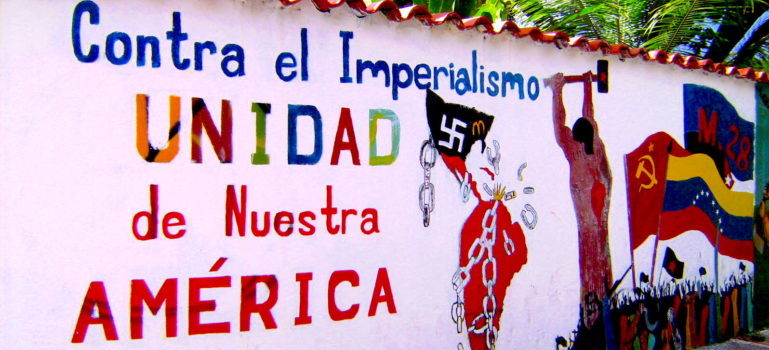
During the thirty-sixth session of the United Nations Human Rights Council, which took place in September, the CETIM drew attention to the situation of the people of three countries on the American continent: Venezuela, Cuba and Chili.
Venezuela
Preoccupied by a unilateral presentation of the situation in Venezuela that encourages violence, the CETIM denounced the waves of enraged media attacks within the country as well as outside against the process of social transformation in Venezuela, flouting the right to information. These campaigns, in the press, on the radio and on television as well as through internet and social media, orchestrated by the power of money, increase hatred and diffuse lies against social change.
Since the first presidential election victory of the late Hugo Chávez in 1998, a process of deep but peaceful socio-economic, political and cultural transformations has been under way in Venezuela. It is irresponsible for a minority of the rich, supported from abroad, to destabilize a government that is trying to bring its people out of poverty.
Cuba
The CETIM expressed its concern regarding the unilateral, illegal and illegitimate embargo imposed by the United States on Cuba for over 55 years. This embargo, reinforced by the new president, Trump, is at the source of numerous human rights violations of the Cuban people. The process of rapprochement between the two countries, undertaken following joint declarations by Presidents Barack Obama and Raúl Castro on 17 December 2014, and which had led to the re-establishment of diplomatic relation on 20 July 2015 as well as to a beginning of the development of ties of respect and cooperation between their governments and their peoples, in conformity with the objectives and principles of the Charter of the United Nations, has been reversed. Also abrogated is the presidential decree of 14 October 2016, which, while not renouncing the intention of fomenting a change of system in Cuba, nonetheless recognized the failure of the means used by Washington, the sovereignty of the Cuban people and the legitimacy of its government.
Chili
On the occasion of the tenth anniversary of the adoption of the United Nations Declaration on the Rights of Indigenous Peoples, the CETIM recalled the commitments that were undertaken by the Chilean government regarding the indigenous peoples, in specific reference to the very difficult situation that the Mapuche people are experiencing.
The current situation that the Mapuche people must endure is the result of a long history of marginalization, discrimination and exclusion. Between 1862 and 1885, Chili and Argentina annexed by force the Mapuche territory even though the independence of the Mapuche people and the delimitation of their territory had been recognized by the Spanish crown in the Treaty of Quillen of 6 January 1641, as well as in numerous later treaties.
The full text of the three written declarations can be found here.